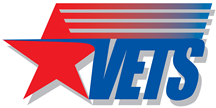A cable installation company recently entered into a consent judgment with the U.S. Department of Labor, agreeing to pay over $1 million in back wages and liquidated damages to nearly 200 workers. [here] The consent judgment also enjoins the company -- and its former vice president -- from future violations of the FLSA.
Tags: wage and hour enforcement, HR Allen Consulting Services, HR Informant, independent contractors, misclassification, Department of Labor
Last week, hotels around the country received unexpected visits from investigators of the U.S. Department of Labor's Wage and Hour Division (WHD). This week, WHD announced an initiative to investigate restaurants in the Los Angeles area, one of several (including Portland and San Francisco) such initiatives around the nation. These activities are the latest evidence that WHD's long-expected aggressive enforcement agenda is finally coming to fruition.
Since the early days of the Obama Administration, WHD has been hiring new investigators --350, according to Solicitor of Labor Patricia Smith. Now that those investigators have been trained and are ready to hit the streets, WHD can fully implement its strategic enforcement
initiatives.
Among the most critical initiatives WHD is pursuing is one dealing with "fissured" industries. Fissured industries, according to WHD, are those that rely on subcontracting or, in the case of restaurants and hotels, have numerous different franchising and operating arrangements. These arrangements -- again, according to WHD -- result in increased rates of wage and hour violations.
As a result, WHD is focusing a significant portion of its investigative resources on the restaurant and hotel industries. Typical issues addressed in these investigations include the proper payment of tipped employees, the exempt status classification of office and management employees, uniform deductions, payment of the proper rate for overtime hours (particularly for tipped employees), whether the required notice has been given to tipped employees, and whether the employer has the required posters. Of course, issues related to timekeeping are also addressed in these investigations.
While these industries have long been among those targeted by WHD, employers in these industries should expect more frequent visits. Moreover, WHD -- as is the case with DOL generally -- has adopted more aggressive enforcement tactics. Whether it is starting investigations with little or no notice, or requiring the payment of liquidated (double) damages to resolve an investigation, or assessing civil money penalties, WHD is using its full arsenal of tools.
One favored tool has been what senior DOL officials have described in various contexts as "shaming." Shaming includes issuing press releases and making all violations available in a publicly-searchable enforcement database. That database has apparently been linked with Yelp! in a recent app known as Eat, Sleep, Shop, which allows consumers to search for restaurants, hotels, and retailers in a location, then view both their Yelp rating and their enforcement history, presumably so the consumers can determine for themselves whether the fact that an assistant manager was erroneously classified as exempt 2 years ago should outweigh the quality of the tiramisu.
The app's synchronization of quality ratings and enforcement data puts employers' reputations on the line in a way that simply cannot be duplicated by issuing a press release. It is at the consumer's fingertips at the moment the decision is made as to where someone should eat, sleep, or shop.
The -- frankly unprecedented -- placement of an employer's reputation on the line (as well as its pocketbook) in an investigation makes it even more critical that employers review their wage and hour practices before WHD shows up at the door. Employers in the hotel and restaurant industries need to ensure compliance to preserve their reputations.
To do otherwise would be a "shame."
Tags: Wage and Hour Division, HR Allen Consulting Services, HR Informant, Overtime, Department of Labor
The past two weeks have brought a number of important updates for those watching the Christopher v. SmithKline case, in which the Supreme Court will determine whether pharmaceutical sales representatives are properly classified as exempt from overtime as outside salespersons under the Fair Labor Standards Act (“FLSA”) and whether to defer to the Department of Labor’s (“DOL”) position expressed in amicus briefs that they are not.
Tags: pharmaceutical sales representatives, HR Allen Consulting Services, Department of Labor, exemptions, FLSA
For the past two years or so, perhaps the most anticipated rulemaking in the wage and hour world has been what has been described at various times as the "FLSA Recordkeeping" or "Right-to-Know" rulemaking. As we have discussed previously on the blog, this expected regulation immediately drew the concern of the employer community when it was reported that it would require employers to prepare a written analysis of an employee’s exempt status under the FLSA, provide a copy of that analysis to the employee, and maintain a copy of that analysis for review by a Department of Labor Wage & Hour Division investigator. More recent descriptions call that initial report into question, but the concern remained.
Tags: misclassification, Department of Labor, exemptions, FLSA, wage and hour
Many employers in today’s business environment have had to make do with fewer employees to meet the constraints of smaller budgets. As the economy shows signs of rebounding, many companies face pressure to grow their business in spite of a lack of resources to support increased hiring. At the same time, competition for entry-level professional jobs, especially among recent college graduates, has become fierce. Many unemployed professionals see working for free as a way to build their resumes, gain experience, get their feet in the door, and stay current in their field. Both groups – employers and those seeking work – have increasingly turned to unpaid internships to provide educated and eager help for employers and opportunities for those in the entry-level job market.
Tags: Department of Labor, Fair Labor Standards Act, Internships
We recently reported that a San Diego Superior Court found that See's Candy Shops violated California law by rounding employee time entries to the nearest six minutes. The Fourth District Court of Appeal let the ruling stand. Yesterday the Supreme Court orderedthe Court of Appeal to review the case and decide the rounding issue.
Tags: Department of Labor, California Department of Labor Standards Enforceme, California Supreme Court, class action
We recently reported that a San Diego Superior Court found that See's Candy Shops violated California law by rounding employee time entries to the nearest six minutes. The Fourth District Court of Appeal let the ruling stand. Yesterday the Supreme Court ordered the Court of Appeal to review the case and decide the rounding issue.
Tags: HR Allen Consulting Services, HR Informant, Department of Labor, California Department of Labor Standards Enforceme, California Supreme Court, class action
The Department of Labor’s Wage and Hour Division (WHD) has issued three new fact sheets on unlawful retaliation under the Fair Labor Standards Act (FLSA), Family and Medical Leave Act (FMLA), and the Migrant and Seasonal Agricultural Worker Protection Act (MSPA).
Tags: Immigration, Agency Happenings, Employment Wage and Hour Law, Retaliation, Department of Labor
The U.S. Department of Labor (DOL) announced that it has delayed the filing deadline for Vets-100/Vets-100A reporting forms for the 2011 cycle to January 15, 2012. The filing deadline was set for today.
“All paper reports and electronic files received at the Service Desk by January 15th will be included as part of the 2011 filing cycle and will not be considered late,” the DOL announced in a statement.
Federal contractors use the VETS-100/VETS-100A reporting forms to detail the number of protected veteran employees and new hires in their workforce. Regulations require contractors to submit this form by September 30 of each year. Technical issues have delayed the reporting requirement this year.
Please visit the VETS website for more information on VETS-100/VETS-100A rules and regulations, including a federal contractor fact sheet.
Tags: VETS-100, VETS-100A, Department of Labor, DOL
























-resized-600.jpg)
